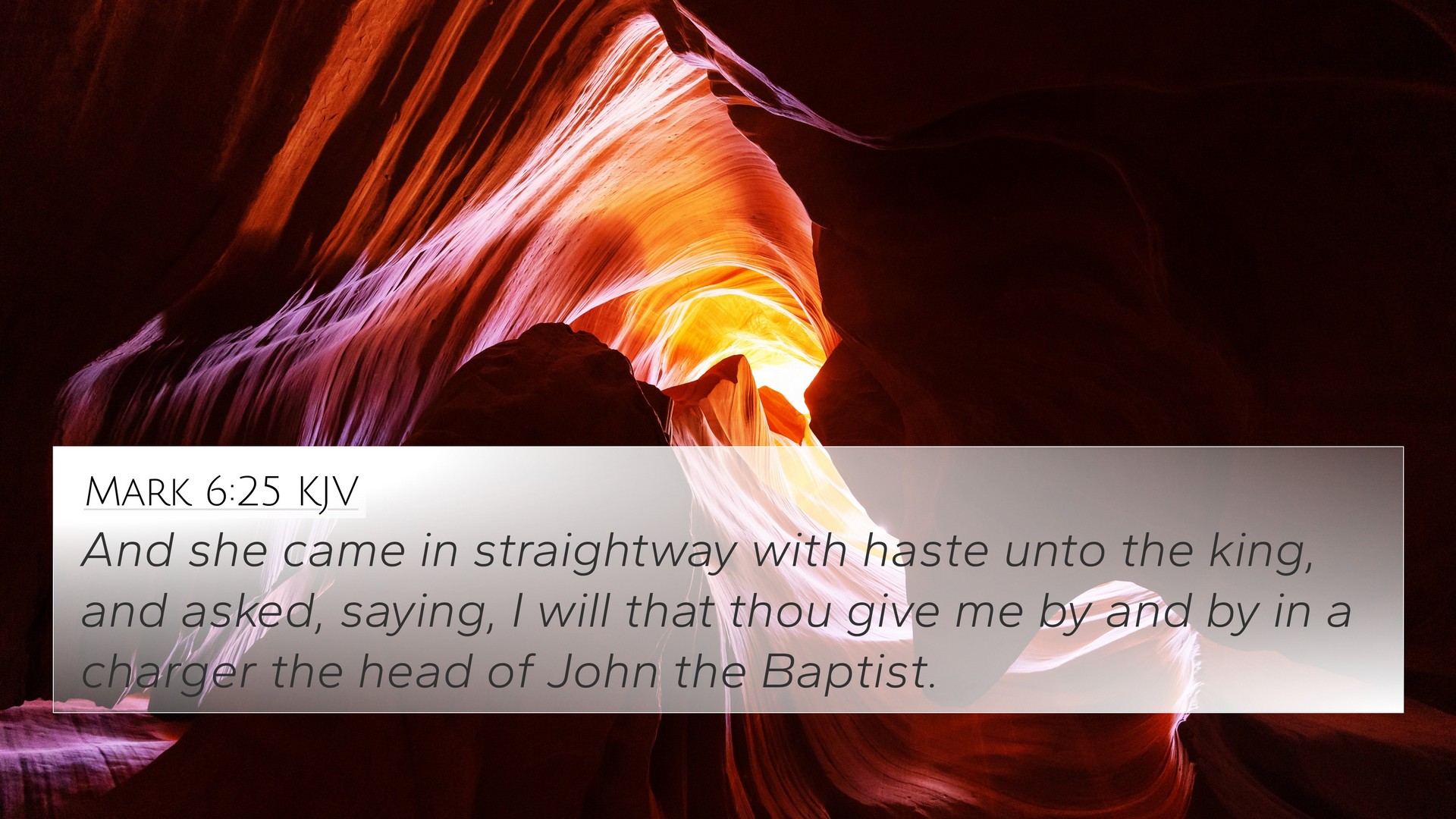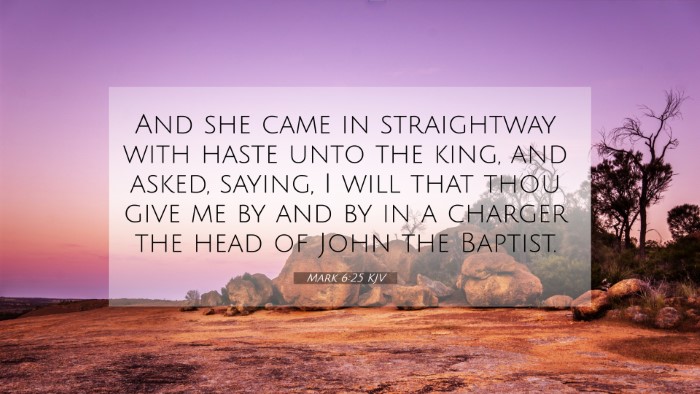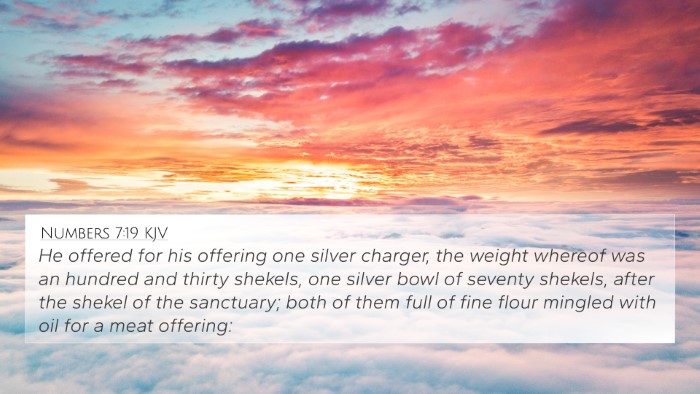Understanding Mark 6:25
Mark 6:25 reads: "And she came in straightway with haste unto the king, and asked, saying, Give me by and by the head of John the Baptist on a charger." This verse captures a pivotal moment in the narrative of Herod and John the Baptist, highlighting themes of manipulation, consequence, and moral failure.
Exegesis and Contextual Analysis
The passage pertains to the account of Herod Antipas, who had imprisoned John the Baptist. The request for John's head, made by Salome at her mother's instigation, reflects the dangerous and vengeful nature of Herodias. This account also emphasizes the weight of a rash vow made by Herod earlier in the banquet.
Key Insights from Commentaries
- Matthew Henry: Henry remarks on the impulsiveness of Herod and Salome, illustrating how the seductions of power and revenge can lead to tragic outcomes. He emphasizes the madness of the occasion, where a frivolous entertainment leads to the loss of a righteous man's life.
- Albert Barnes: Barnes highlights the significance of the request. He notes that the head of John the Baptist symbolizes the silencing of a prophetic voice. Herod's fear of losing face before his guests played a critical role in his tragic decision.
- Adam Clarke: Clarke expands on the psychological manipulation involved, particularly how Herodias exploited Herod's pride. He also discusses the moral implications of the event and its foreshadowing of the fate of other prophets and righteous figures in history.
Thematic Connections
This verse serves as a dramatic moment reflecting broader Biblical themes, including:
- Power and Corruption: The request illustrates how power can corrupt decision-making, leading individuals to betray their moral obligations.
- Prophetic Silence: John's beheading symbolizes a more extensive silencing of God's messages throughout history.
- Fear of Man: Herod's decision illustrates a significant Biblical principle regarding the fear of man vs. the fear of God (Proverbs 29:25).
Cross-References for Mark 6:25
Several Bible verses relate to Mark 6:25, providing a deeper understanding of its implications:
- Matthew 14:6-12: This parallel account provides further context about Herod’s feast and the events leading to John's execution.
- Luke 3:19-20: This verse mentions John’s rebuke of Herod, establishing the conflict that leads to his imprisonment.
- Matthew 27:1-2: This passage reflects on the decisions made against Jesus, fittingly contrasting the fates of the Baptist and the Messiah.
- John 3:30: John's declaration about Christ, emphasizing the humility and role of John as a prophet, ultimately leading to his fate.
- Proverbs 29:25: "The fear of man brings a snare, but whoever trusts in the Lord shall be safe," illuminating Herod’s dismay in his decision-making.
- Acts 12:1-3: Here, the fate of James is discussed, mirroring the themes of persecution of righteous leaders.
- Romans 1:18-32: The broader theme of rejecting God's truth surfaces in these verses, echoing the moral decline displayed in Herod’s court.
Comparative Analysis
In studying this verse, one can utilize tools for Bible cross-referencing to explore:
- Thematic Bible verse connections: Such as exploring the responses of leaders to prophets, seen both here and in the actions toward Jesus.
- Links between Old and New Testaments: The earlier accounts of how prophets were treated (e.g., Elijah, Jeremiah) provide a sobering reflection on the continuity of this theme.
- Dive into Proverbs and Ecclesiastes: Reflections on wisdom and the consequences of foolish choices highlight how individual decisions can lead to dire outcomes.
Detailed Studies and Reflection
To facilitate a comprehensive Bible study experience around Mark 6:25, consider these suggestions:
- Bible concordance: Use a concordance to trace other instances of beheading or silencing prophets across the Scriptures.
- Cross-reference Bible study methods: Employ a systematic approach to dive deep into the thematic parallels with other scriptural narratives.
- Identify connections between Old and New Testament: Explore how the fate of prophets in the Old Testament parallels the treatment of Jesus and the apostles.
Conclusion: The Lasting Impact of Mark 6:25
Mark 6:25 serves as a powerful reminder of the stakes involved in the warfare between righteousness and wickedness. It challenges readers to reflect on their allegiances and the consequences of political and ethical decisions. Engaging in cross-referencing Bible texts related to this verse will enrich understanding and provide a robust framework for interpreting the complexities of Biblical narratives.






